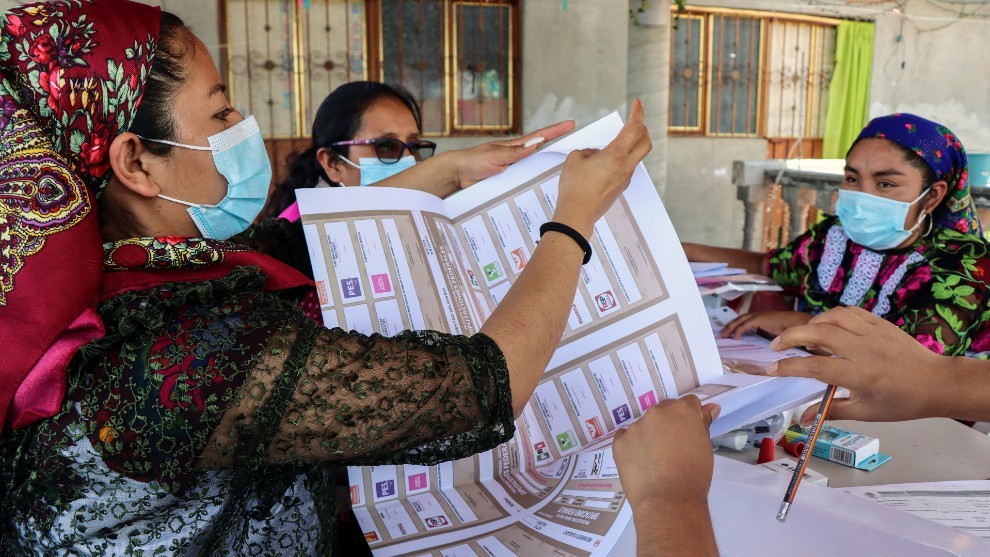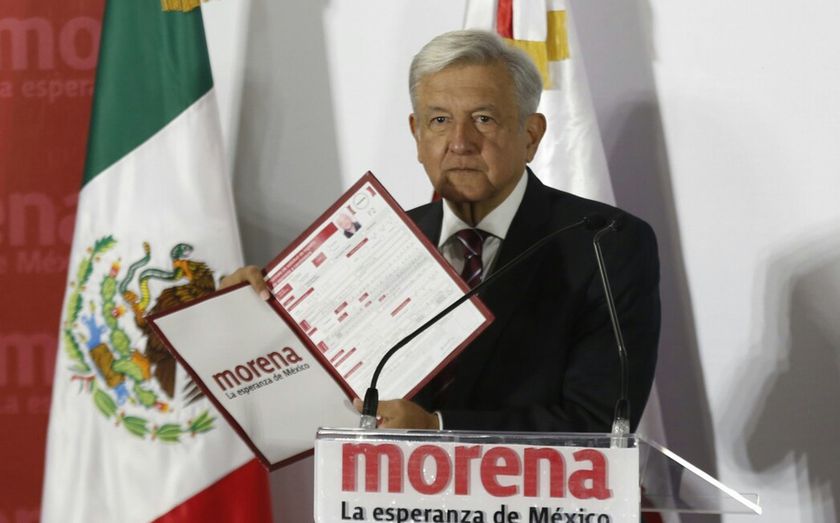On June 6, Mexico will be held the election that will become the largest electoral process in the contemporary history of democracy in the country. Nevertheless, a week before the largest Mexican election, the toll of victims among candidates went to dozens. In addition to the general high level of crime, the federal government’s inaction in solving focal regional problems and the lack of sufficient resources for this also affects. How is Mexico preparing for the upcoming electoral process? Why is the degree of social tension increasing?
The election to be held in Mexico this Sunday are intended to be the largest electoral process in the country’s contemporary history. The citizens of the Latin American state will elect more than 20 thousand executives and representatives at various levels, including 15 governors, 500 federal and 1,063 regional deputies, as well as the heads of 1,926 municipalities in 30 states. It is worth noting that this accounts for three quarters of the country’s local leaders.
As some regional researchers have already noted, various forms of violence are still prevalent in Mexico today, and their level is increasing due to impunity. On the eve of the electoral process, there are more and more cases of violence against the backdrop of political struggle, and the federal government by its inaction demonstrates that many of these crimes do not need to be seriously prosecuted. Thus, as the government of the state shuns accountability, local players are encouraged to resolve differences through violence.

In turn, Mexican criminal structures seek to maintain relationships with local authorities, which play an important role in drug trafficking or other forms of organized crime, together with the municipal police and administration officials. A number of experts argue that at the regional level, organized criminal groups have already become the subject of power. Moreover, the electoral process is turning into a conjuncture for the regrouping of forces on the ground, and one of the interpretations of political violence is that organized criminal groups are becoming a more active player and factor of power at the regional level. Depending on the region, one or another grouping, or their combination, may dominate.
The Attorney General’s Office of the Republic of Mexico in 2018 initiated a complete reorganization process with the aim of acquiring autonomy and independence from the state, but this process has not yet been completed. The process of development and creation of this institute continues. Thus, it turns out that the federal government still does not yet have the necessary resources, the appropriate coverage and the necessary personnel, and is trying to act using the available limited resources.
Returning to the context of the upcoming elections, it is worth emphasizing that since the start of the election campaign in September 2020, according to the analytical research company “Etellekt”, 34 candidates for various political positions have been killed in Mexico. In addition, two more political assassinations occurred after May 25, 2021, when the aforementioned study was published. In most cases (89%), the victims were the rivals of the incumbent heads of municipalities. According to the latest data, cited by the television channel “CNN”, at least 89 politicians of different levels were killed, more than 700 faced threats. Candidates are attacked, threatened with reprisals, including throwing severed pig heads. According to expert estimates, the situation is primarily related to drug trafficking, but so far, the federal government has not been able to cope with organized crime.
Another significant factor that hinders the effective investigation of crimes is the high degree of disunity between the authorities at the federal, regional and municipal levels. In such conditions, the participation of the government (state) as an actor is practically not noticeable, which allows local actors to achieve approval and direct the actions of the state in their own interests. Thus, the federal authorities do not seek to take a more substantial and stable position at the local level, which leads to such consequences.

When assessing the effectiveness of the federal government, it is necessary to refer to a survey conducted a few days before the midterm election by the Mexican newspaper “EL FINANCIERO”. According to the latest data, the level of public approval of the work of the President Andrés López Obrador (Spanish – Andrés Manuel López Obrador) is 59%, while 37% of respondents do not support the activities of the head of state. In the aforementioned opinion poll, the most rated element of government is the COVID-19 vaccination campaign, which received 58% positive reviews and 23% negative ratings. By the way, the study was carried out immediately after the announcement of the vaccination stage for adults from 40 to 49 years old.
However, while the government vaccination program has received positive reviews in terms of economics; public safety, and anti-corruption, the federal government has received more negative than positive reviews. Opinions were divided as follows about the course of the country: 37% believed that Mexico was on the right track, 39% that the federal government had lost its way, and 23% voted that the course was not too different from the previous administration.
Of the 15 states in which the new administration will be elected, the ones with the highest support for the incumbent are worth noting: Guerrero and Campeche, where the head of state received approval levels of 71% and 69%, respectively. The most unfavorable for the federal government are Chihuahua and Queretaro, each with 45% approval and 51% disapproval.
How the votes will be distributed will become known in the very near future, but it is already very obvious that the electoral process, which will take place on June 6, will not only be the largest in the history of Mexico, but will also demonstrate the level of support from the federal government. Based on the data of several social polls, a number of experts believe that already now it is possible to predict a certain deterioration in the positions of the ruling “National Regeneration Movement” (Spanish – Movimiento Regeneración Nacional) party, while the president’s supporters will probably receive a relative, but not an absolute majority of seats – about 40%.


